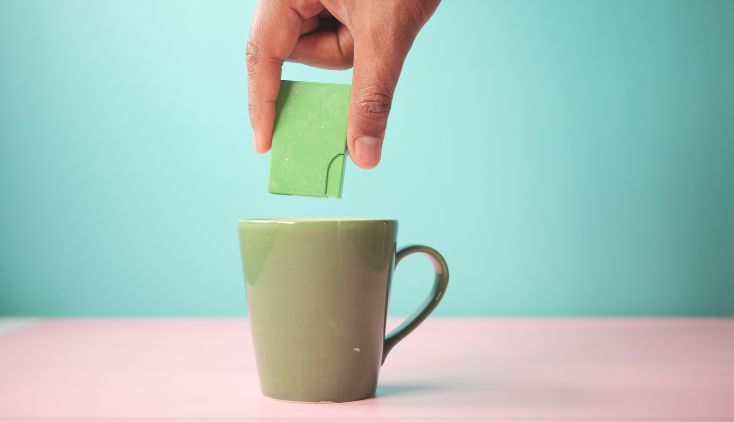Dangerous Drinks
Managing your health with colon cancer means making smart choices about what you drink. To help with your gut health, there's Vowst, an oral microbiota-based treatment to help prevent the recurrence of Clostridioides difficile (C. difficile) infection, a type of bacteria that can cause severe diarrhea.
Drinks to Avoid for Colon Cancer
Artificially Sweetened Drinks
Diet sodas and other beverages with artificial sweeteners may seem like a good alternative to sugary drinks, but they can irritate your digestive system. Some studies suggest that artificial sweeteners might increase inflammation, which can be particularly harmful to someone with colon cancer.
Sugary Fruit Juices
Not all fruit juices are healthy, especially those with added sugars. Extra sugar in these drinks can cause spikes in blood sugar and may increase the risk of cancer growth. It’s better to opt for fresh fruit or juice made from whole fruits without any added sweeteners.
Processed Sports Drinks
Sports drinks may seem like a good way to stay hydrated, but they are often loaded with sugar and artificial ingredients. These drinks are typically used to replenish electrolytes after exercise, but for colon cancer patients, the high sugar content can do more harm than good. Stick to water or natural electrolyte sources instead.
Sugary Beverages
Soft drinks and other sugary beverages should be limited if you're dealing with colon cancer. These drinks are packed with sugar, which can lead to weight gain and increase the risk of cancer spreading. Too much sugar also spikes your blood sugar levels, making it harder for your body to fight cancer effectively.
Alcohol
Alcohol is another drink you should try to avoid. Consuming alcohol can irritate your colon and increase inflammation, making it harder for your body to heal. In fact, research has linked heavy alcohol use to a higher risk of colon cancer. If you choose to drink, it’s best to limit your intake or avoid it altogether.
Energy Drinks
Energy drinks are filled with caffeine and sugar, both of which are problematic for those with colon cancer. The high sugar content can contribute to cancer growth, while caffeine can lead to dehydration, which isn't good for your overall health. These drinks also lack any nutritional value, making them a poor choice for cancer patients.
Full-Fat Dairy
Whole milk and other high-fat dairy products are tough on the digestive system, especially for people dealing with colon cancer. The high-fat content may promote inflammation, which can worsen your symptoms. Opt for lower-fat dairy options or consider plant-based milk alternatives to reduce the risk of added digestive stress.
Creamy Coffee Drinks
While coffee can be part of a healthy diet in moderation, creamy, sugary coffee drinks like lattes or frappuccinos are loaded with unnecessary calories, sugar and fat. These drinks can lead to weight gain, which increases the risk of colon cancer progression. If you're a coffee lover, stick to plain or lightly sweetened versions.
Treatments for Colon Cancer
In addition to watching what you drink, receiving proper treatment is essential for managing colon cancer. Here are some of the most common treatment options:
- Radiation therapy: Radiation therapy involves high-energy beams that target cancer cells, helping to shrink tumors before surgery or treat advanced-stage cancer.
- Targeted therapy: This type of therapy focuses on specific cancer cells, attacking them while sparing healthy cells. It helps slow down the growth and spread of colon cancer.
- Immunotherapy: Immunotherapy helps boost the immune system so it can better recognize and fight cancer cells. This treatment can be an option for certain types of colon cancer.
- Surgery: Surgery is often the first step to remove cancerous tumors from the colon. Removing these tumors can prevent cancer from spreading and improve your recovery chances.
- Chemotherapy: This treatment uses drugs to target and kill cancer cells. Chemotherapy is often used after surgery or to treat cancer that has spread to other areas.
Vowst for Digestive Health
For some colon cancer patients, maintaining a healthy gut is also important. Vowst is an FDA-approved oral microbiota-based treatment designed to help prevent the recurrence of Clostridioides difficile (C. diff) infections. C. diff can cause severe diarrhea and gut health issues, especially after antibiotic treatments. By restoring healthy gut bacteria, Vowst supports digestive health, which is crucial when managing colon cancer.
Make Smart Choices
Paying attention to your diet and drink choices is key when managing colon cancer. Avoiding sugary, fatty and processed drinks can help you stay healthier and support your treatment. By making better beverage choices and following the right medical advice, you can take control of your health and improve your quality of life. Always consult your doctor before making changes to your diet or starting new treatments.
Read on to learn about the worst drinks for vision loss.
